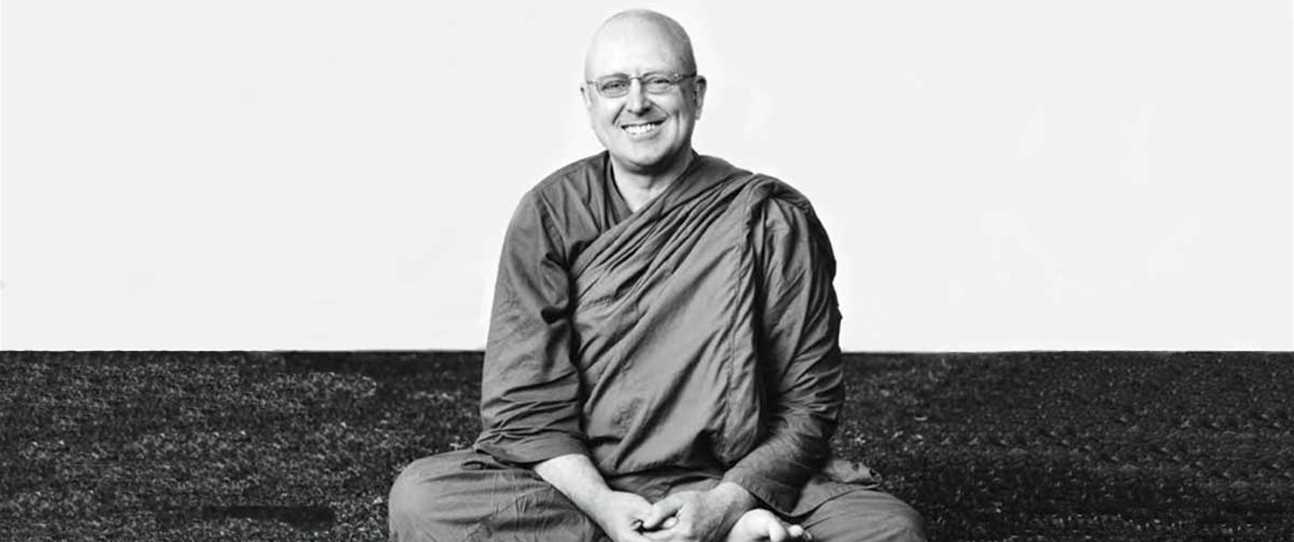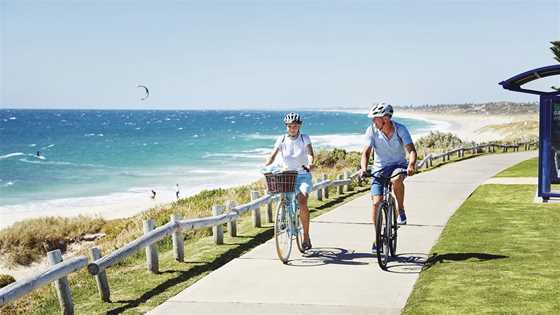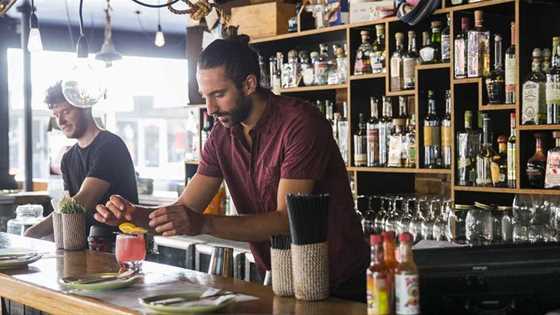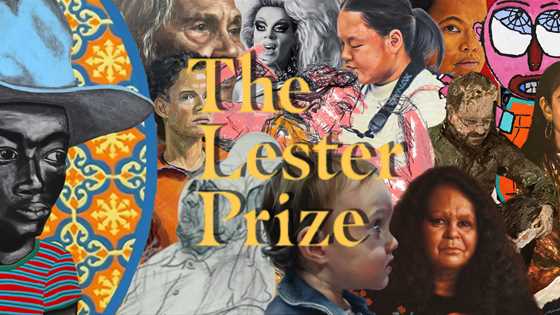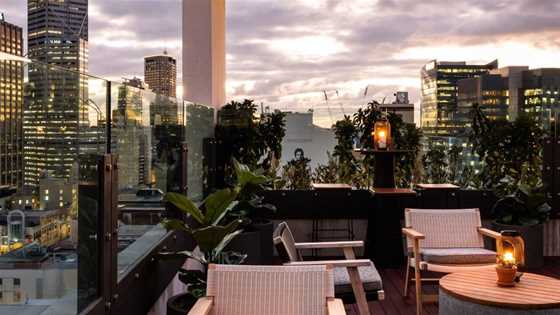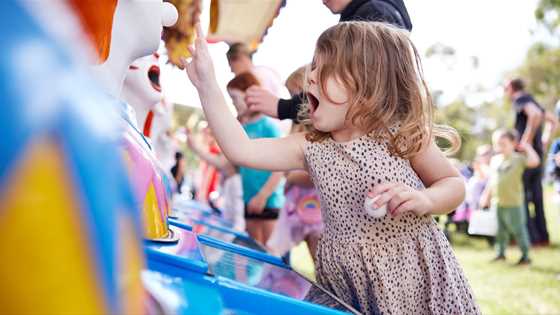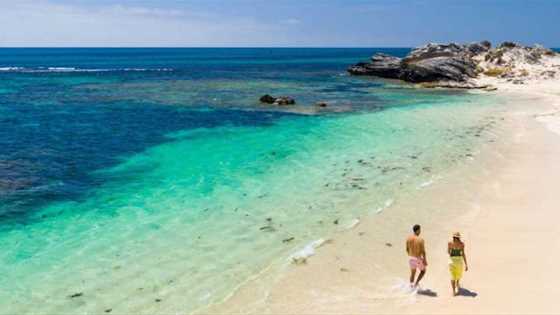They all answered a calling - but not the same one. Even so, the quest harmony was a common thread among representatives a range of WA's religions. In discussing the hopes and challenges of various belief systems, we found more similarities - and a lot more laughter - than dogma would have us believe.
They all answered a calling - but not the same one. Even so, the quest harmony was a common thread among representatives a range of WA's religions. In discussing the hopes and challenges of various belief systems, we found more similarities - and a lot more laughter - than dogma would have us believe.Sheik Faizel Bedford - Muslim scholar
Originally from apartheid-afflicted South Africa, Faizel attended a Christian school, then studied Islam in Kuwait. He was well-placed to understand the cultural and religious misconceptions that surround WA's population Of Muslims. "When you look at Australian history, all of us came here as migrants," says the man, who has taught for nine years at the Islamic College in Dianella. "All I can say is to be accepting. We're all very diverse, and we all want to make a meaningful contribution." Islam means peace. It teaches about tolerance, and is a very open religion. We welcome people, just like the Prophet. God created mankind, he didn't create sects. Fundamentalism happens when people don't open the door to other schools of thought. They become obsessed with what they think is right, not what Islam is about. Tolerance is a great concern. Australia is a fantastic place. I'm thankful it affords us the opportunity to practice our religion. However, like any society, some people are narrow-minded. The issue of the hijab, or of boat people, gets in the newspaper and becomes a hot potato. It creates kinds of animosity. The children I teach are from 40 different nationalities. Some have been oppressed, they've lived in tents and refugee camps, then they come to school and have to adapt to a whole new culture with different religions. If you listen to their Stories, the tears come. The negative publicity created by fundamentalists will always be there. Being an adult I can understand it, but I'm very passionate about interfaith, for the mere fact that people may understand each other's religions. For five years, I've run a program with children from Muslim, Catholic, Jewish and other faiths, to show them how to integrate with different cultures and different denominations. You'd be surprised how they latch it. Some have connected and become friends. That's the rewarding part. The program has worked perfectly.Kay Goldsworthy - Anglican bishop
In 2012, Kay will join the celebrations marking 20 years of women priests in Australia. "But I look to a time when there are more than two women at the Bishops' meeting," says the former Perth College chaplain who was one of two women in Australia ordained bishop. When asked what Anglicans do, Desmond Tutu said, "We meet. Of course we do a lot of other things. But our theology has to live afresh in a new generation, and be clear. So we meet with each other to talk about real things, not abstract things". That means thinking through questions and reasoning through the Bible to come to a new and deeper understanding. To be in your local community is a really important part of what it means to be Anglican. How we have a sense of ourselves. From the Perth diocese, Anglicare was one of the largest agencies of care and social welfare in this state, it is the same story for Amana Living, and St Bart's. Local parish churches connect with their communities. When you live in a world of plenty, how do you attend to those who fall between the cracks? A lot of people in WA are making money through the boom, but we wonder how we can deepen and strengthen ourselves as a civil society. How do we give from the resources we have - be they financial, spiritual, or expertise? As human beings, we need to be able to give beyond our own life, beyond ourselves. Another issue is the fear and anxiety that's been around since 9/11. Perth is one part of the world where Christians and Muslims have looked at ways we can talk across that fear and anxiety - build bridges, if you like. There are some good interfaith friendships. If we're able to connect at a level of friendship and understanding, then we're capable of entering into other conversations with each other that might not be so straightforward. I think peace which is "beyond human understanding" is a gift. Know that in the midst of whatever is happening, you are held - held by love, held by God.Ajahn Brahm - Buddhist monk
Ajahn once turned down a gig as a stand-up comic in Melbourne. "l try to bring a bit of lightness into spirituality and religion," says the spiritual director of the Buddhist Society of Western Australia, who lives at the Bodhinyana Monastery in Serpentine. "If someone took a Buddhist holy text and flushed it down the toilet, call a plumber. You can flush all the books down the toilet you like, can burn down the temples, you can kill the monks and nuns, but can't destroy Buddhism. Much of the worship people do is about the containers - the images. In Buddhism, we make a point of worshipping the content: kindness, respect for other people, non-violence, forgiveness AS Buddhists, We take responsibility for our actions. There's no worship of a god in Buddhism. It's very much a personal religion, a faith you make yourself. There's an understanding that you create your world. We give people the tools by which to fashion a peaceful, beautiful, spiritual life - rather than just praying for it." "Karma is like people baking a cake. The first cook has the very best ingredients, the second has the worst. Who makes the best cake? It's not always the person with the best ingredients. The amount of care, the love, the effort you put into your baking. The ingredients you have to work with, that's the karma of the past. The most important part of karma is what you do with the ingredients you have. Depression is a big concern at the moment. People work so hard they run out of energy, and eventually they get deeply tired and give up. It's all about the expectations people put on themselves. Excellence is such a high thing to strive for. People aren't learning to have good relationships, because they've got no relationship with themselves. There's an old Buddhist saying: when you want something more, you can't enjoy what you already have. We need to stop and have no-desire weekends, or no-desire hours, where we can enjoy what we've already achieved That is the heart of meditation. What peace feels like: those moments. When you don't want anything in the whole world except just to be here. These are the moments of rest. In Perth, the only time we ever find people resting in peace is in the cemetery, and it's a bit late then. So RIP before you die, and enjoy it. [gallery link="none" columns="1" size="full" ids="https://media.localista.com.au/2019/03/combined-1200x675.jpg|"]Professor Duane Varan Bahai
A researcher at Murdoch University, Duane is part of the community in Melville. Like all Baha'is (the faith originated around ISO years ago in Iran where it remains the biggest minority faith), he believes all religions are fundamentally worshipping the same God. And he's an optimist about it. "Baha'is have almost no ritual, more a way of life, so we don't have the equivalent of churches. We have no clergy, so it comes to individual initiative. Certainly it is not a top-down religion, but is a community which differentiates it from a philosophy. The community has coherence, and it is organised - but it is not the kind of organisation that tells you what to believe.It's not enough to be spiritual in a cave. Our spirituality finds expression through acts of service. Baha'is tend to focus on the positive state of trying to build, than what they think is wrong with the world. So Baha'is be for race unity, not against racism. A subtle but strong difference in how we tackle social issues of the day. We're strong advocates for global governance. We're all part of a human family, we have to learn how to interact with one another. We strongly believe in world unity. Racial equality, gender equality - very much in vogue today, but there are many places in the world where Baha'is are persecuted because of these ideas. We're not political. We don't run for public office or take partisan positions, but there are Baha'is everywhere in the world, and we act as a community on a global scale. We're part of a coherent whole, not just individuals responding to the issues of the day. Different religions are like different chapters of the same book. We're not competing with each other, but the social laws change. Baha'is don't believe in the idea of exclusivity. We don't believe anybody has the sole truth, ourselves included. I think religion is an enormously positive and productive influence on a person's life, as long as it's a yardstick for them measuring themselves. It becomes destructive when it becomes a yardstick for judging other people".Sister Julia Della Franca RSJ - Josephite nun
The iPod-wearing former carpenter once sang Joan Armatrading tunes on street corners in Fremantle. Now a trained social worker, she sometimes encounters her 'street friends' at the night shelter for women she helped start ago. "You never know where you're going to end up, but somehow what you've done is your kit for the next bit," says Sister Julia, who took her life vows last year with the Sisters of St Joseph of the Sacred Heart, the order of nuns founded by Saint Mary MacKillop. "Mary MacKiIIop was a real kind of gal. Her earthiness and Australianness is the draw card for me. Choosing an order of nuns is bit like supporting a football club; style about it that draws you in, then it draws you deeper. It's a call, at every fibre of your being. To be a Josephite is to relieve suffering and bring hope wherever you are and to whoever you're with. I like the Josephites because we're very relevant women, and we're prepared to stick our neck out and be with the people. We're not afraid of being with the poor, spotting the marginalised and going where no one wants to go. That's our work, that's an expression of our faith. I see the vows as very relevant to now. They free me, they don't hold me back. Poverty is not having nothing, its about sharing what you are and have. Chastity doesn't mean you can't love anybody, its that you're available to love everybody. Obedience is about collaboration and listening, I'm really lucky; Gandhi took 16 vows - I got off lightly. Exclusion is just not on. The word 'catholic' means universal, so I challenge people who exclude people who are gay, and other minority groups. I don't think any religion has the monopoly on faith, hope and love, or goodness and kindness. You've got to stand in line for those virtues I think. There are a lot of incredibly beautiful, wholesome people around. I don't stand before anyone else who's got that kindness of heart, and those eyes. Be the sanctuary for others. That's the big challenge for people today. Such a big noisy place, this world. Everyone goes fast, no-one's got time to stop and look you in the eye, it is important to find a sense of stillness and quiet - a place where we can remember who we are".David Freilich - Jewish Rabbi
A former Sydneysider and rugby league fan, Rabbi Freilich converted to Aussie Rules years ago. Now a fanatical West Coast Eagles supporter, he admits to a joyful thrill in the tribal aggression of football rivalry - a harmless pleasure within our "overwhelmingly open, gentle, and respectful society". Now in his third decade, spiritual leader of Perth Jewish community Rabbi Freilich has seen his community grow. "We may be small, but a smaller society is closer," says the man who points to mutual respect as the key ingredient for social harmony. "Judaism is often accused of being exclusive, which is something of a misunderstanding. Just because we are not evangelical doesn't mean we consider ourselves superior. There are, also, all the usual prejudices that have accumulated over history. By far the most damaging, I believe, was the interpretation of the death of Jesus Christ. It has proved almost catastrophic to the Jewish people on many occasions. Judaism has always changed and evolved with the times. It has existed alongside the secular world, survived assimilation into modern culture, and endured heartbreaking tragedy. At its heart, it's about knowledge, respect, family and the joy of human existence". "In Perth, it is effortlessly easy to get on with local clerics from all religions. We have a very real tolerance for differences in ideology. In this way, religion tends to reflect WA's society; tolerant, easy-going and too relaxed to get truly angry. We should be proud of our reputation for tolerance and understanding. When I look at other parts of the world, I realise we are lucky to live in a country free of combat zones and religious hatred. Collectively, the religious leaders in Perth are united in advancing a more peaceful and just society. This is necessary in a world increasingly devoted to personal advancement and the chase of the almighty. We also provide a point of reference for moral issues that might otherwise be swept aside by the process of law or the whim of fashion. No matter the religion, we need at least a sense of godliness in our lives. It's ironic that moderate religious leaders have become the leading advocates for free speech. We about difference, not the obliteration of difference. This can only be achieved through mutual respect. All people should be free to express their beliefs without fear. Godliness is first and foremost a peaceful state. Without godliness, the world would be poorer".Father Peter Bianchini - Catholic priest
Once, his learned congregation would stay for a cuppa and discuss his Sermons: "Now there are so many distractions in life," says the priest at the Sacred Heart parish in Highgate. Keeping people enthused and on message is his focus. "I see being Catholic as a way of living: turn the other cheek, welcome the stranger, care for the sick, the poor and the desperate," he says. "It's not only a belief system, there's an activity about it." "I have hobos sleeping on my verandah. The floor vibrates when they snore. I don't mind. It's not uncommon for me to be making cups of tea for them or feeding them during the day, but that can be quite confronting for a lot of people. Whoever's at the bottom of the rung gets picked on, and that is anti-Christian. Jesus said, "The last will be first". His message is to turn our thinking around - whether it be the hobos or the Aborigines or the refugees. When it comes to a crunch, people look for religion. I'm often confronted by the question "Why me?" Things happen to anyone, why shouldn't they happen to you? You have to read the paper every day to see the hatred, bitterness, anger and lack of forgiveness. That screams of a terrible contradiction. Comlng to God for forgiveness is not valid if we don't live forgiveness in our lives. I don't know if Catholicism needs to change. I think we need to change. Sometimes I'm quite convinced we don't see the full picture. Our lives tend to focus on one or two things, but so much more that can give our lives meaning. I think the church can challenge you to think about that. With my homilies, I try to get people to think outside their experience. Celibacy is misunderstood. It's a way of not only dedicating yourself to God, but also givlng yourself to people. Celibacy can't be seen outside of the context of the church community. It is not seen as an ideal in our society, but in the Church seen as an ideal way of life. Will Catholic priests ever be able to marry? Probably. I think we'd be foolish to say anything else. People have just drifted away from the church. They have a sense of needing God in their life - except when they have to. We're a sacramental religion, and even non-church goers show up for baptisms, weddings and confirmations. It doesn't matter who you are in life, we give you the same. The Pope has the same ritual as a pauper. Death brings together what we're about".
